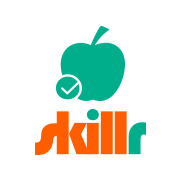Description

Alemira Proctor

iSchool
Comprehensive Overview: Alemira Proctor vs iSchool
Alemira Proctor and iSchool are two distinct offerings, often serving different purposes within the educational and proctoring technology landscape. Here's a comprehensive overview based on your provided structure:
Alemira Proctor
a) Primary Functions and Target Markets:
Primary Functions: Alemira Proctor is an online examination proctoring solution designed to monitor exams remotely. It utilizes advanced technologies to ensure the integrity of online assessments by preventing cheating and ensuring that the exam conditions are met. Features typically include live or recorded proctoring, automated monitoring through AI, and analytics for examining results and patterns.
Target Markets:
- Educational Institutions: Universities and colleges using remote learning models.
- Professional Certification Bodies: Organizations that require secure testing for certifications and licenses.
- Corporate Training: Companies needing to assess the skills and knowledge of their employees in a controlled and secure manner.
b) Market Share and User Base:
Alemira Proctor must compete with established players in the remote proctoring space like ExamSoft, ProctorU, or Honorlock. While exact figures for market share and user base can vary, Alemira Proctor would generally be pursuing a growth trajectory, particularly targeting markets with a high demand for secure remote assessments, such as North America, Europe, and parts of Asia.
c) Key Differentiating Factors:
- Technology Utilization: Unique AI algorithms and machine learning capabilities might set it apart in terms of accurate monitoring and identity verification.
- User Experience: Alemira may offer a streamlined and user-friendly experience for both test administrators and test-takers.
- Customization and Integration: Ability to integrate with various Learning Management Systems (LMS) offering tailored solutions for different institutions.
iSchool
a) Primary Functions and Target Markets:
Primary Functions: iSchool typically refers to a comprehensive digital learning platform designed to support various educational processes. It may offer traditional LMS features, virtual classroom environments, student information systems, content management, and interactive learning tools.
Target Markets:
- Primary and Secondary Education: Schools needing an integrated platform to manage curricular and extracurricular activities.
- Higher Education: Colleges and universities seeking scalable and flexible learning solutions.
- Online Academies and EdTech Initiatives: Organizations setting up online educational programs, especially in emerging markets.
b) Market Share and User Base:
Similar to Alemira Proctor, iSchool would compete with other educational platforms such as Blackboard, Moodle, and Canvas. Market share in the LMS sector is fragmented, with different regions showing preference for different systems. Thus, iSchool’s market share would depend significantly on regional penetration, specific institutional partnerships, and the effectiveness of their platform’s features and pricing.
c) Key Differentiating Factors:
- Integrated Ecosystem: iSchool may offer a more holistic approach, bringing together various functionalities like virtual classrooms, content delivery, and administrative tools in one platform.
- Ease of Use and Accessibility: Designed to be intuitive for teachers and students, promoting ease of adoption.
- Content and Pedagogy Focus: Customized content and tools that align with specific educational standards or pedagogical approaches.
Overall Comparison and Conclusion
Market Comparison:
- Alemira Proctor competes directly in the niche of exam security and proctoring, while iSchool plays in the broader space of education management and delivery.
Differentiating Factors:
- Alemira Proctor specializes in assessment integrity, focusing on security and technology to ensure trustworthiness in testing.
- iSchool provides a broader range of educational solutions, focusing on integrating teaching, learning, and administrative functionalities into a seamless platform.
User Base Overlap: There could be overlaps in user base where institutions using iSchool also require proctoring solutions like Alemira Proctor, providing opportunities for bundled offerings or strategic partnerships to cater comprehensively to educational needs.
Contact Info

Year founded :
Not Available
Not Available
Not Available
Not Available
Not Available

Year founded :
2020
Not Available
Not Available
United Kingdom
Not Available
Feature Similarity Breakdown: Alemira Proctor, iSchool
As of my last update, Alemira Proctor and iSchool are distinct products that may offer different functionalities in the realm of educational technology. However, there might be some commonalities and differences in their features. Let's break it down:
a) Core Features in Common
-
Online Assessment Proctoring:
- Both platforms likely provide tools for proctoring online assessments, ensuring academic integrity by monitoring students during exams or assessments.
-
Integration with Learning Management Systems (LMS):
- Both may offer integration with popular LMS platforms such as Moodle, Canvas, or Blackboard, allowing seamless setup and management of exams and courses.
-
Automated Monitoring:
- They might include automated monitoring features using AI to detect suspicious behavior, helping institutions maintain exam credibility without needing live monitoring.
-
Analytics and Reporting:
- They provide analytics and reporting tools to help educators and administrators analyze exam results and monitor student performance.
b) User Interface Comparison
-
Alemira Proctor:
- Alemira Proctor's user interface might focus on simplicity and ease of use, providing a straightforward path for setting up and monitoring exams. The interface design likely emphasizes minimalism, ensuring users can navigate without a steep learning curve.
-
iSchool:
- iSchool's user interface could be more comprehensive given its broader focus, with features geared toward overall school management rather than just proctoring. Its dashboard might be more detailed, offering insights and management tools for diverse educational activities.
c) Unique Features
-
Alemira Proctor:
- May have specific focus-driven AI algorithms for proctoring, developed specifically to handle large volumes of exams simultaneously with detailed behavior analysis.
-
iSchool:
- Likely extends beyond proctoring to include wider educational management features, such as timetable management, attendance tracking, and communication tools for students and faculty. It might offer comprehensive school management functionalities encompassing various administrative and educational activities.
These points provide a generic overview based on typical features in educational and proctoring platforms. The actual feature sets and user experiences might differ based on software updates or individual institutional implementations. Always check the latest documentation or product demos for specific capabilities.
Features

Not Available

Not Available
Best Fit Use Cases: Alemira Proctor, iSchool
Alemira Proctor and iSchool serve distinct purposes and are suited for different contexts, based on their features and intended use cases. Here's a breakdown:
Alemira Proctor
a) For what types of businesses or projects is Alemira Proctor the best choice?
Alemira Proctor is designed for organizations that need robust, secure exam proctoring solutions. This could include:
- Educational Institutions: Universities, colleges, and online schools that conduct frequent examinations and require secure, scalable proctoring solutions to ensure academic integrity during remote exams.
- Professional Certification Bodies: Organizations that provide professional certifications and need to ensure the credibility of their certification processes.
- Corporate Training Providers: Companies that offer certification programs to employees or clients, where exam security is critical.
c) How does Alemira Proctor cater to different industry verticals or company sizes?
Alemira Proctor can cater to various industry needs by providing scalable solutions that ensure exam integrity and data security. It's suitable for small educational institutions needing cost-effective solutions, as well as large universities or certification bodies with high-volume exam management requirements. Its adaptability to remote and hybrid assessment models makes it beneficial across numerous sectors, including education, IT certification, and compliance training.
iSchool
b) In what scenarios would iSchool be the preferred option?
iSchool is a versatile e-learning platform that would be preferred in the following scenarios:
- K-12 Education: Schools looking to enhance their digital learning environments, offering a diverse set of tools for teaching, learning, and administration.
- Supplemental Education Providers: Tutoring centers and after-school programs that need an adaptable platform for delivering educational content outside traditional classrooms.
- Higher Education and Continuing Education Programs: Colleges and universities aiming to provide a blended learning experience and deliver online courses.
- Corporate Training Programs: Businesses that wish to provide continuous learning and development opportunities to their employees.
c) How does iSchool cater to different industry verticals or company sizes?
iSchool caters to different industry verticals by offering customizable learning management systems that are scalable and adaptable to diverse educational needs. For small institutions or tutoring providers, it offers an easy-to-use interface with essential features. For larger institutions or businesses, it provides advanced analytics, integrations, and scalability. Its flexibility makes it suitable for varied educational contexts, from K-12 to higher education and corporate training.
In summary, Alemira Proctor is ideal for secure exam environments across educational and certification industries, while iSchool offers a flexible learning platform suitable for varied educational purposes across K-12, higher education, and corporate sectors. Both products can scale according to the size and specific needs of the organization, providing targeted solutions for different use cases.
Pricing

Pricing Not Available

Pricing Not Available
Metrics History
Metrics History
Comparing undefined across companies
Conclusion & Final Verdict: Alemira Proctor vs iSchool
Conclusion and Final Verdict
When deciding between Alemira Proctor and iSchool, it’s essential to weigh the features, costs, scalability, and overall value provided by each platform. Here’s a comprehensive breakdown to guide your decision-making process:
a) Which Product Offers the Best Overall Value?
Alemira Proctor offers the best overall value for institutions primarily focused on secure, scalable, and innovative proctoring solutions. Its robust security features, combined with ease of integration and adaptability, make it an excellent choice for educational institutions that prioritize academic integrity and require flexible proctoring options.
b) Pros and Cons of Each Product
Alemira Proctor:
- Pros:
- Security: Offers advanced AI-driven proctoring to ensure high levels of exam integrity.
- Scalability: Easily scalable to accommodate a wide range of institutions and class sizes.
- Integration: Seamlessly integrates with existing LMS (Learning Management Systems).
- User Experience: User-friendly interfaces for both administrators and students.
- Cons:
- Specialization: Primarily focused on proctoring, so it might require additional systems for other educational needs.
- Cost: May be more expensive than competitors, depending on the scale and specific features required.
iSchool:
- Pros:
- Comprehensive Features: Offers a wide array of educational tools beyond proctoring, including course management and student engagement.
- Affordability: Often provides cost-effective solutions especially for small to medium-sized institutions.
- Customization: Higher levels of customization for creating a unique educational experience.
- Cons:
- Proctoring Limitations: The proctoring capabilities may not be as advanced or specialized as those offered by Alemira Proctor.
- Integration Challenges: Integration with existing systems may require additional technical support.
- Scalability: Might face challenges in scaling up rapidly for very large institutions.
c) Recommendations for Users
For institutions deciding between Alemira Proctor and iSchool, consider the following recommendations:
-
Prioritize Needs: If your primary requirement is high-quality, secure online proctoring with minimal risk, Alemira Proctor is likely the better choice. For institutions that need a broader set of features and tools within one platform, iSchool might meet their needs more comprehensively.
-
Evaluate Budget: Assess your budget constraints carefully. While Alemira Proctor provides superior proctoring services, iSchool might offer a better financial package if proctoring is not your sole priority.
-
Consider Integration: Analyze the current systems you are using and determine which product offers the most seamless integration. Alemira's proctoring integrates easily with popular LMSs, whereas iSchool might require more technical adjustments.
-
Test Both Systems: If possible, conduct trial runs of both systems to understand their functionalities, user interfaces, and how they fit with your institution’s operational needs.
By assessing these factors and using trial periods to experience each platform firsthand, institutions can make an informed decision that best aligns with their academic goals and operational requirements.
Add to compare
Add similar companies




